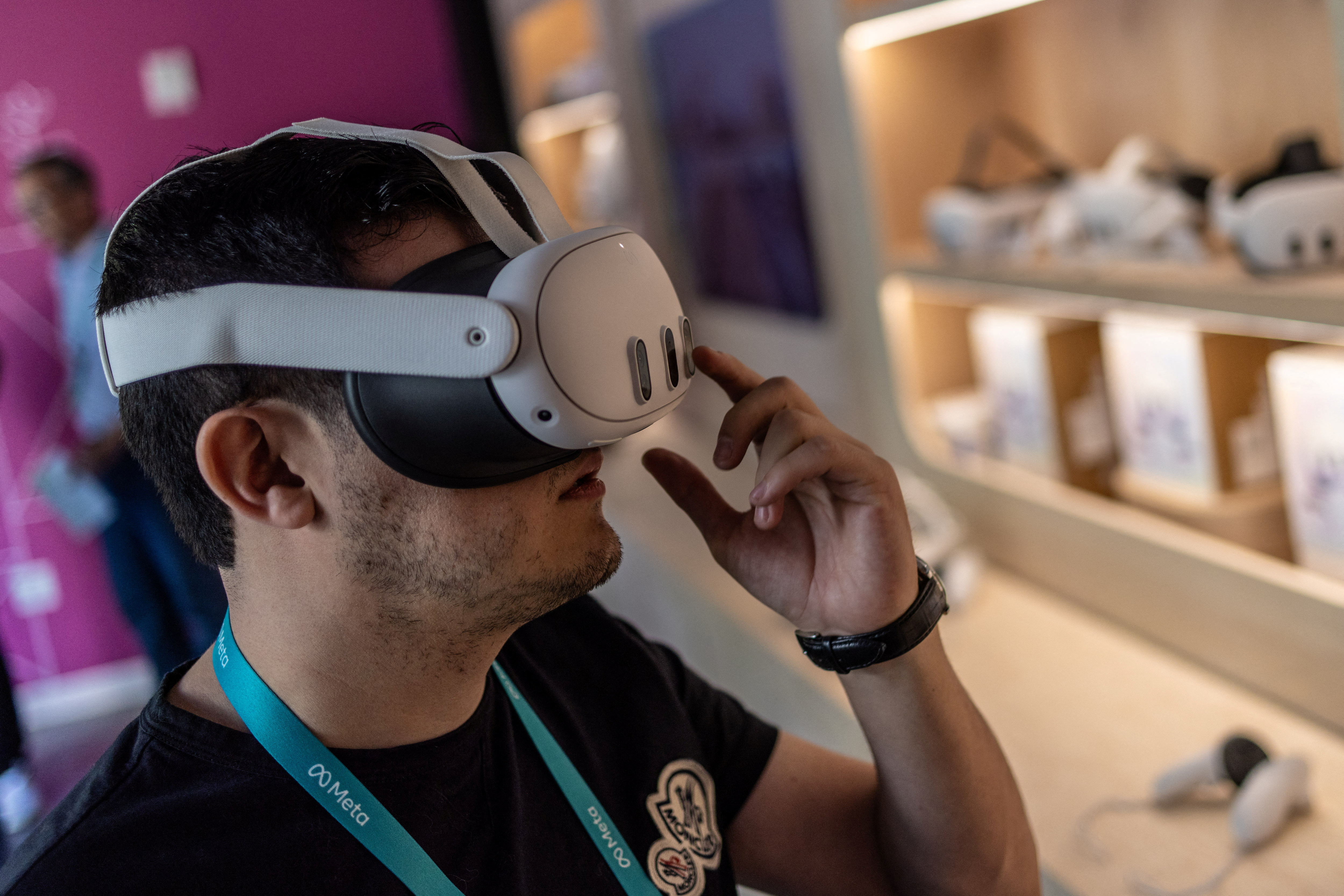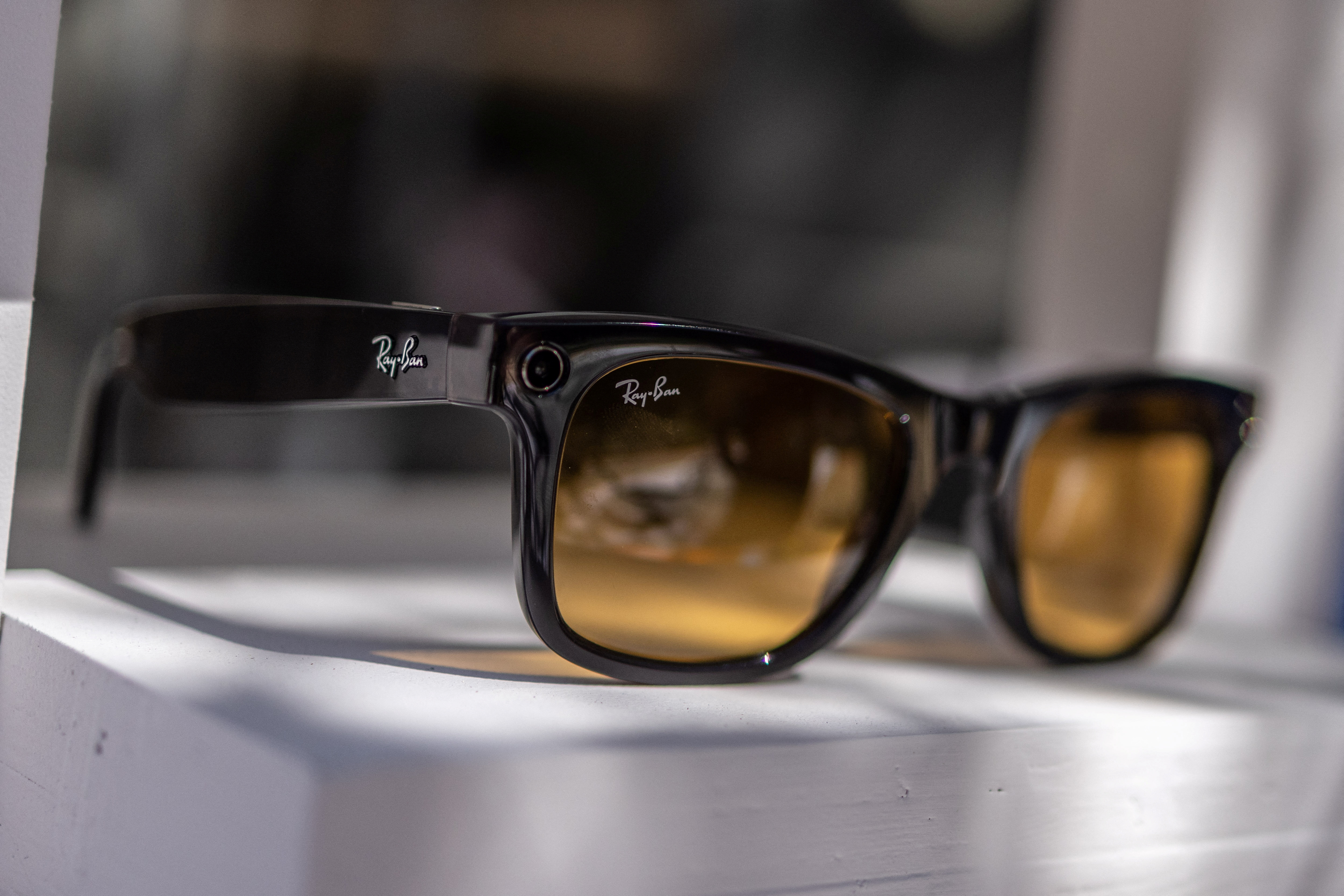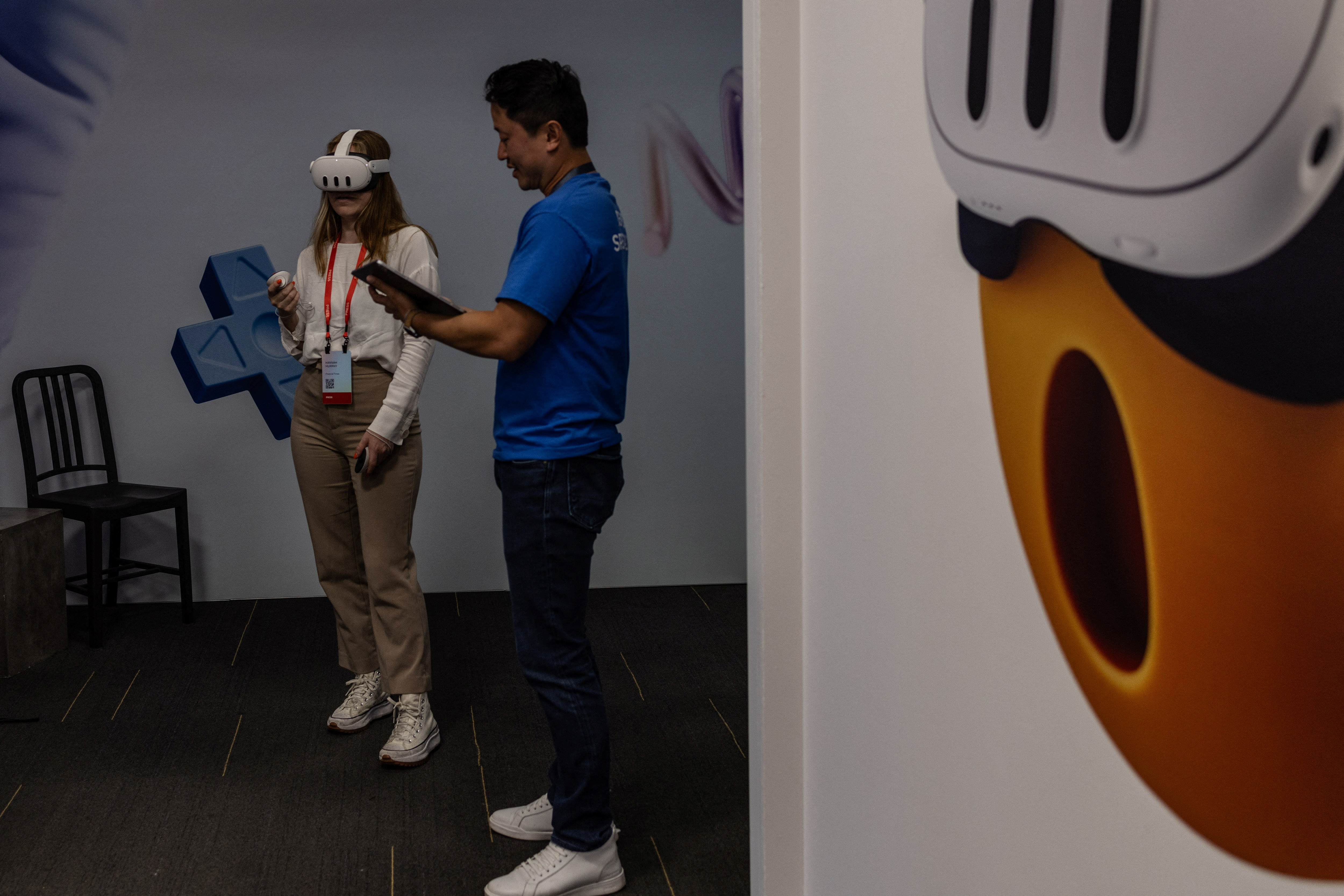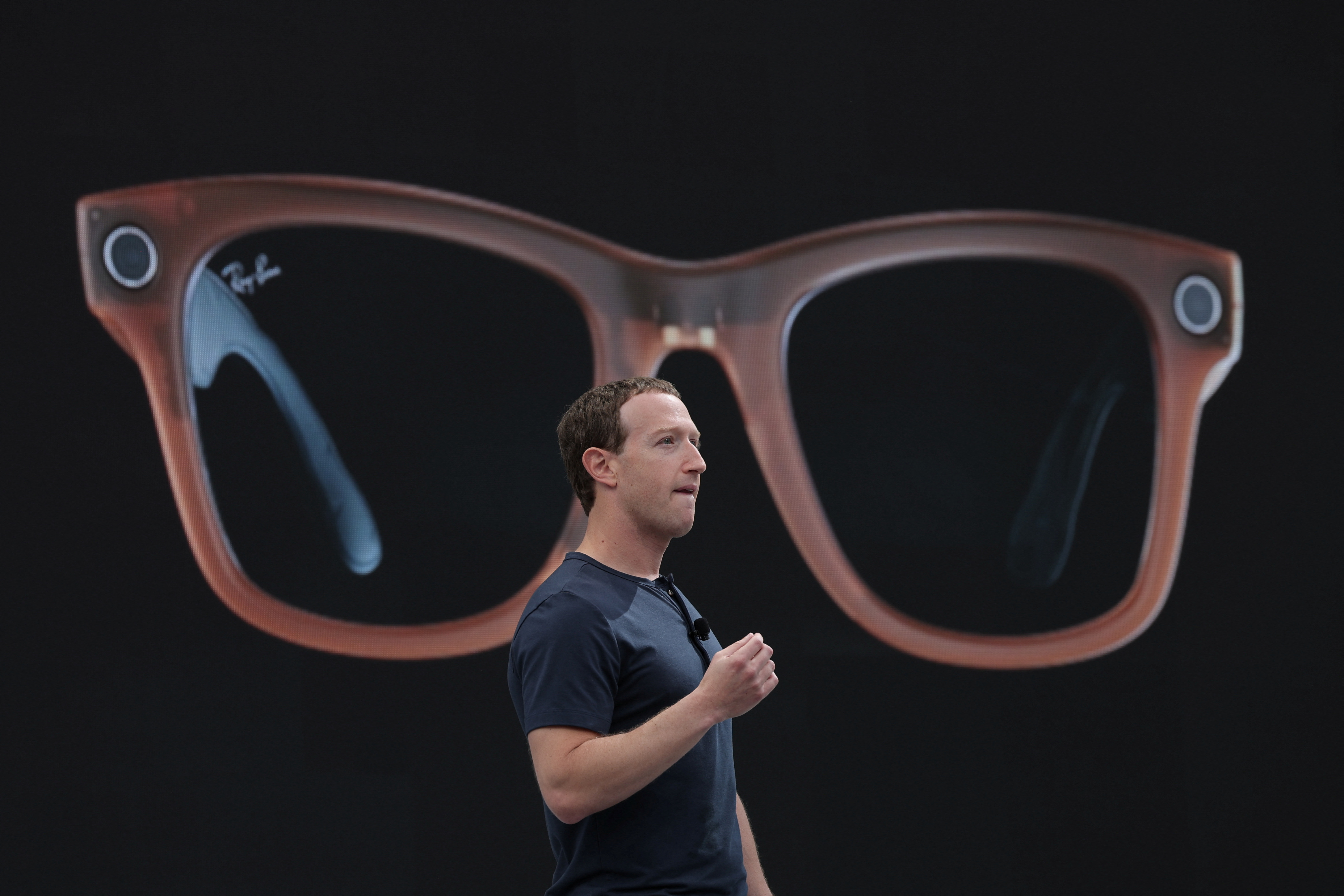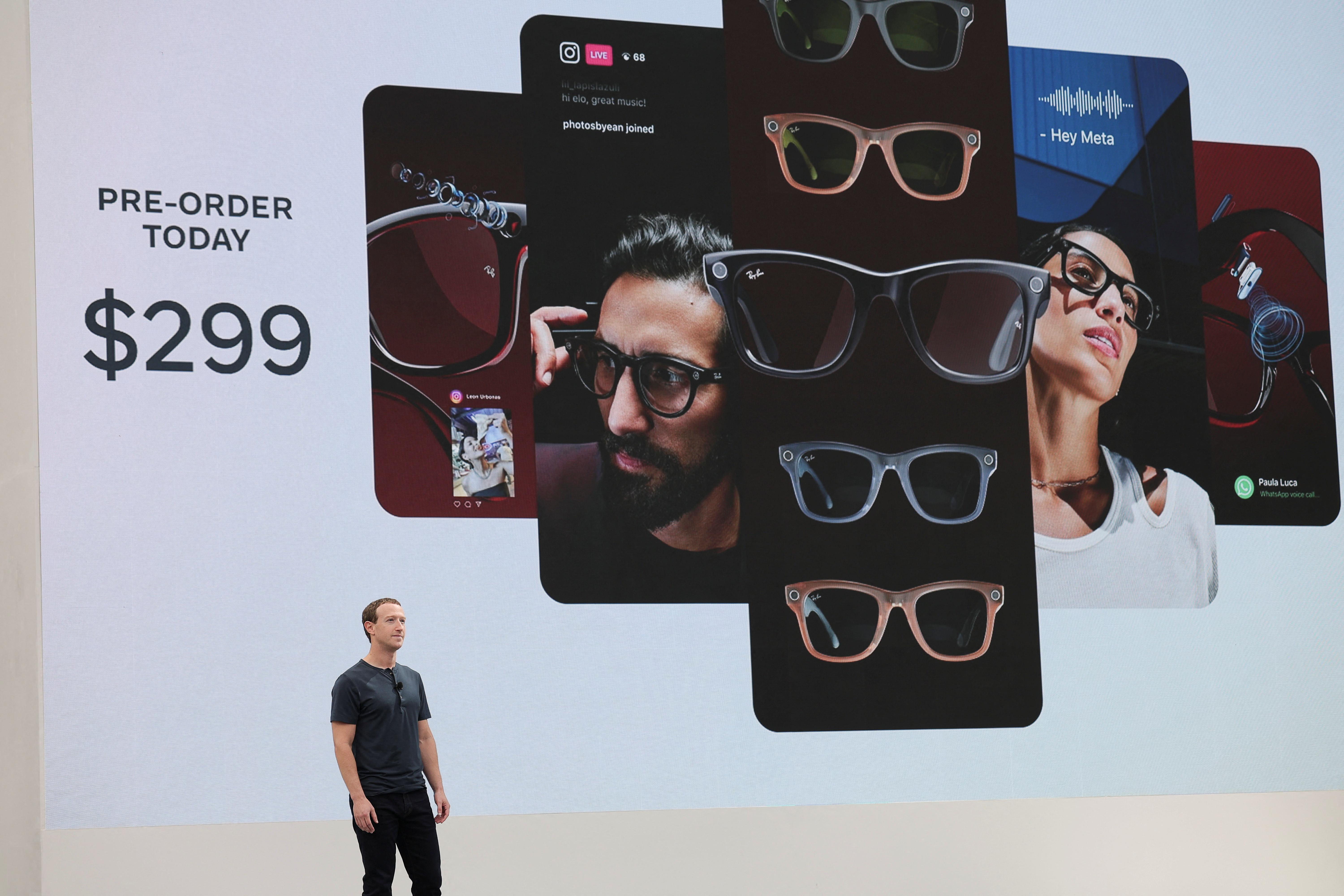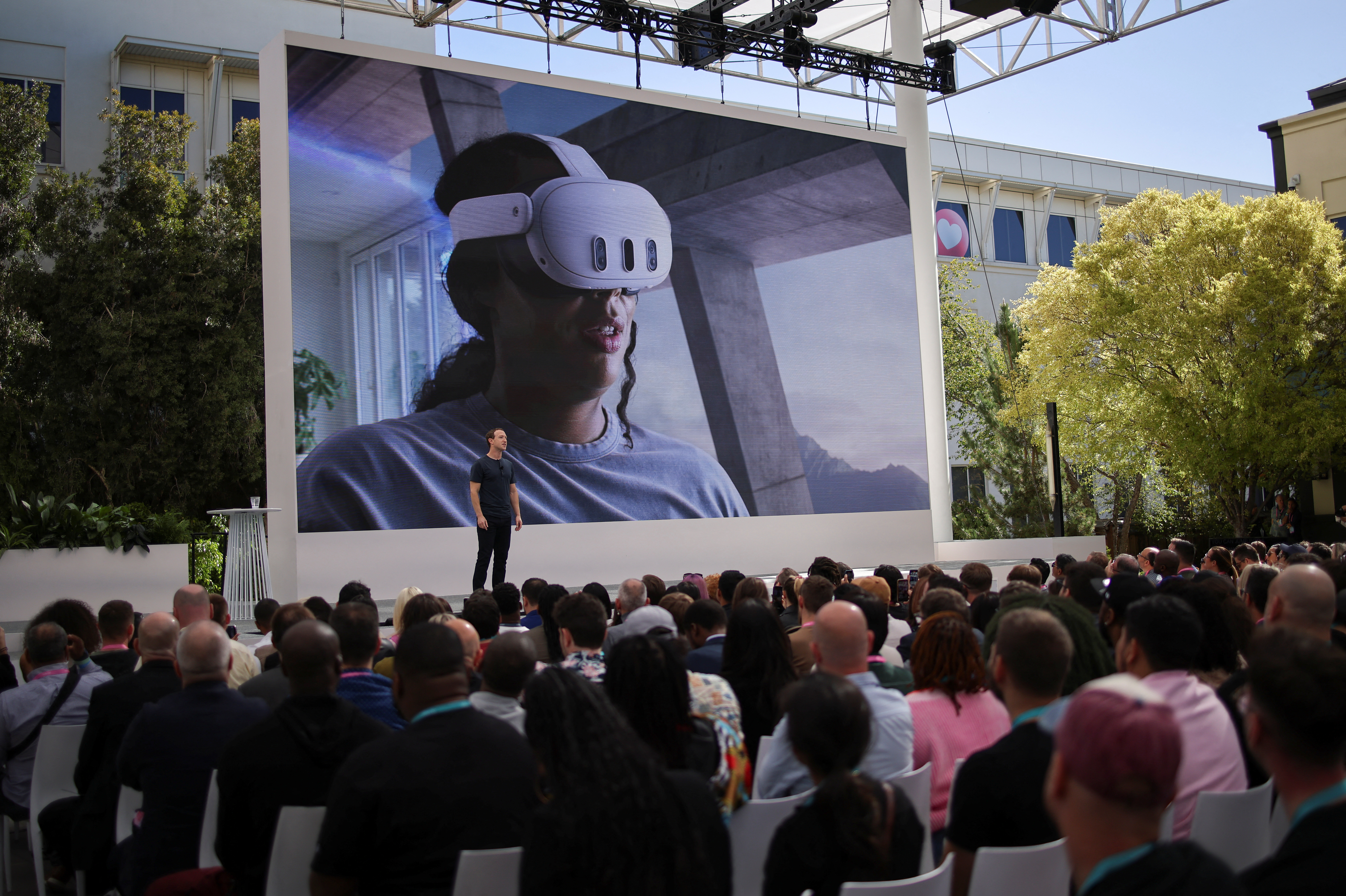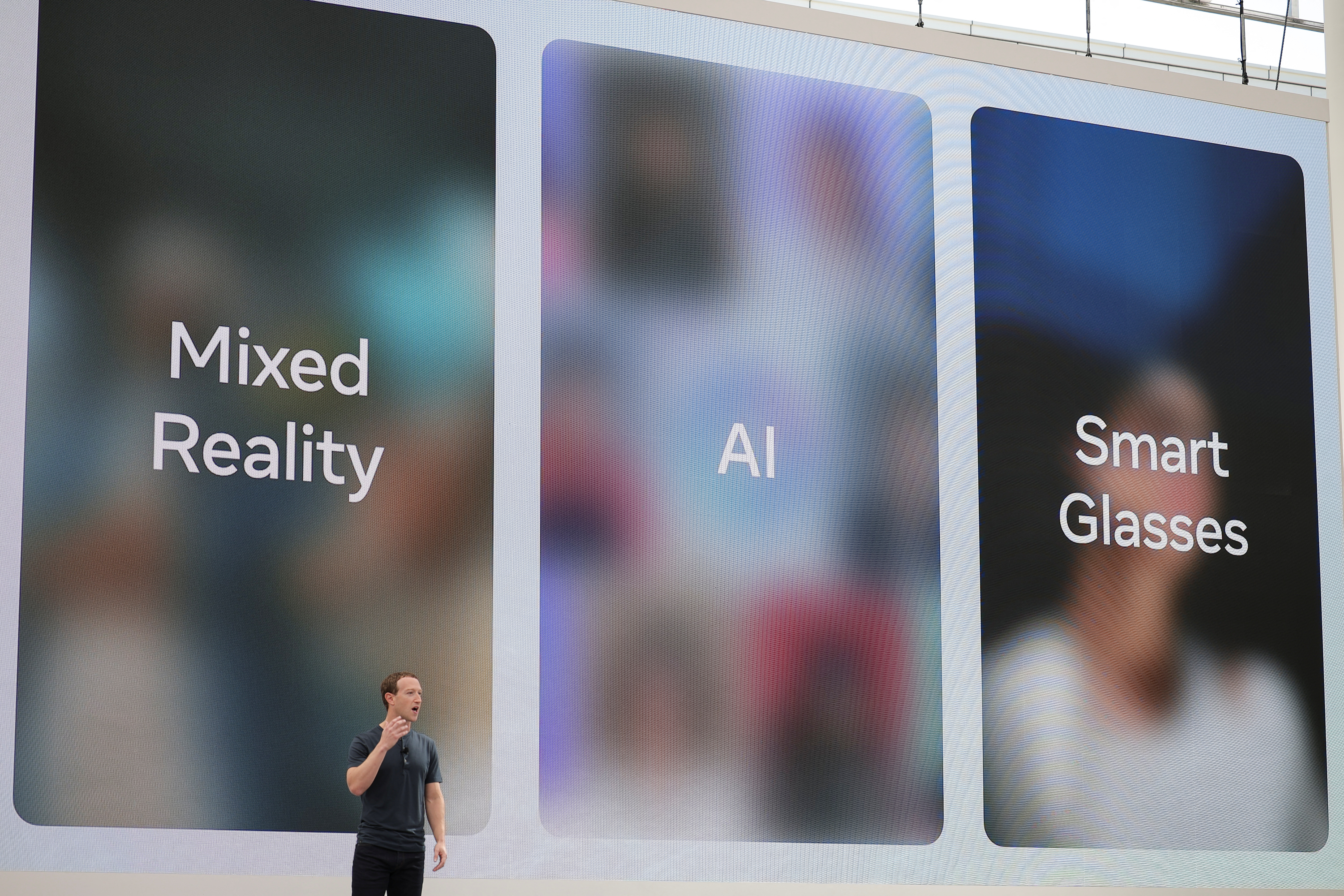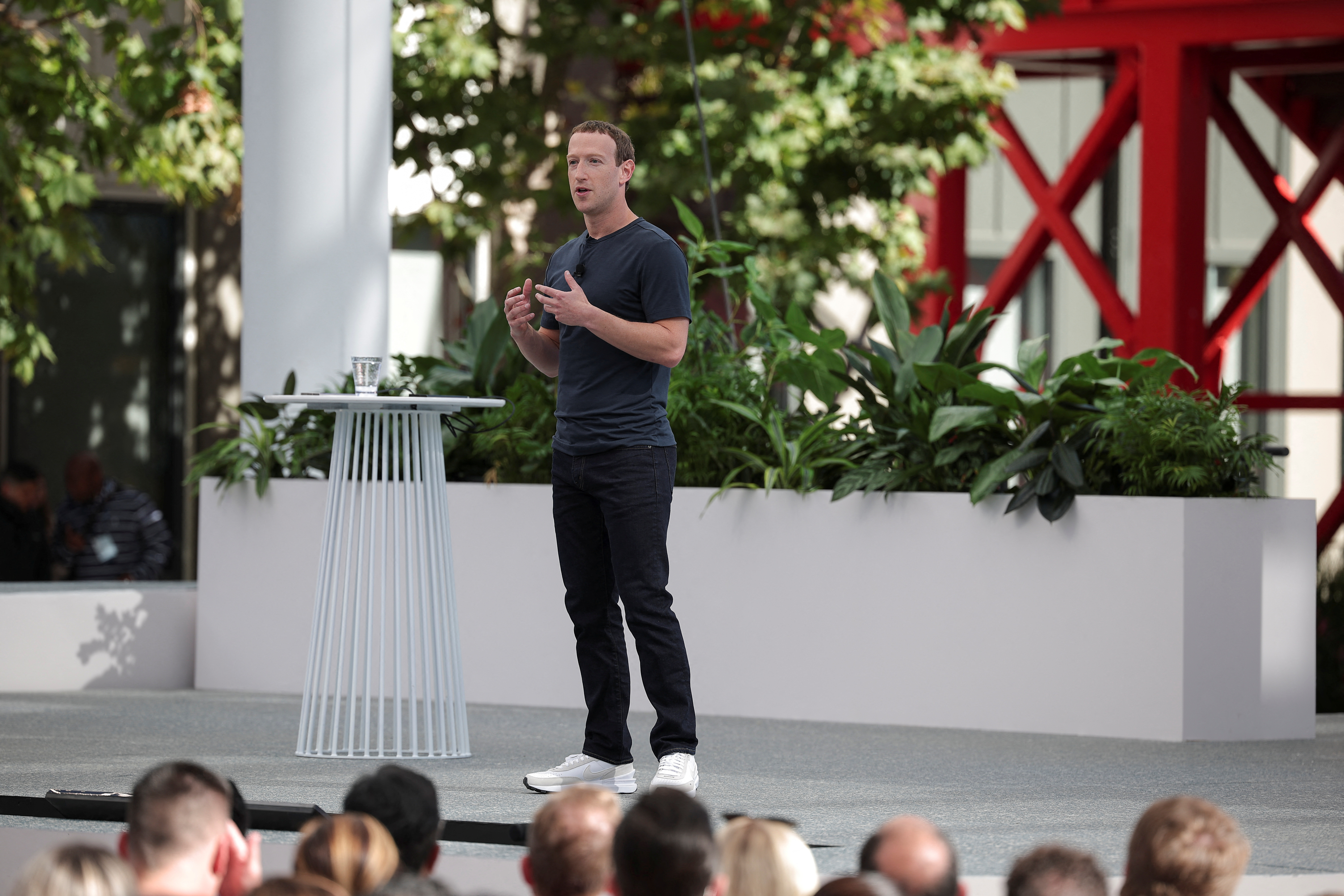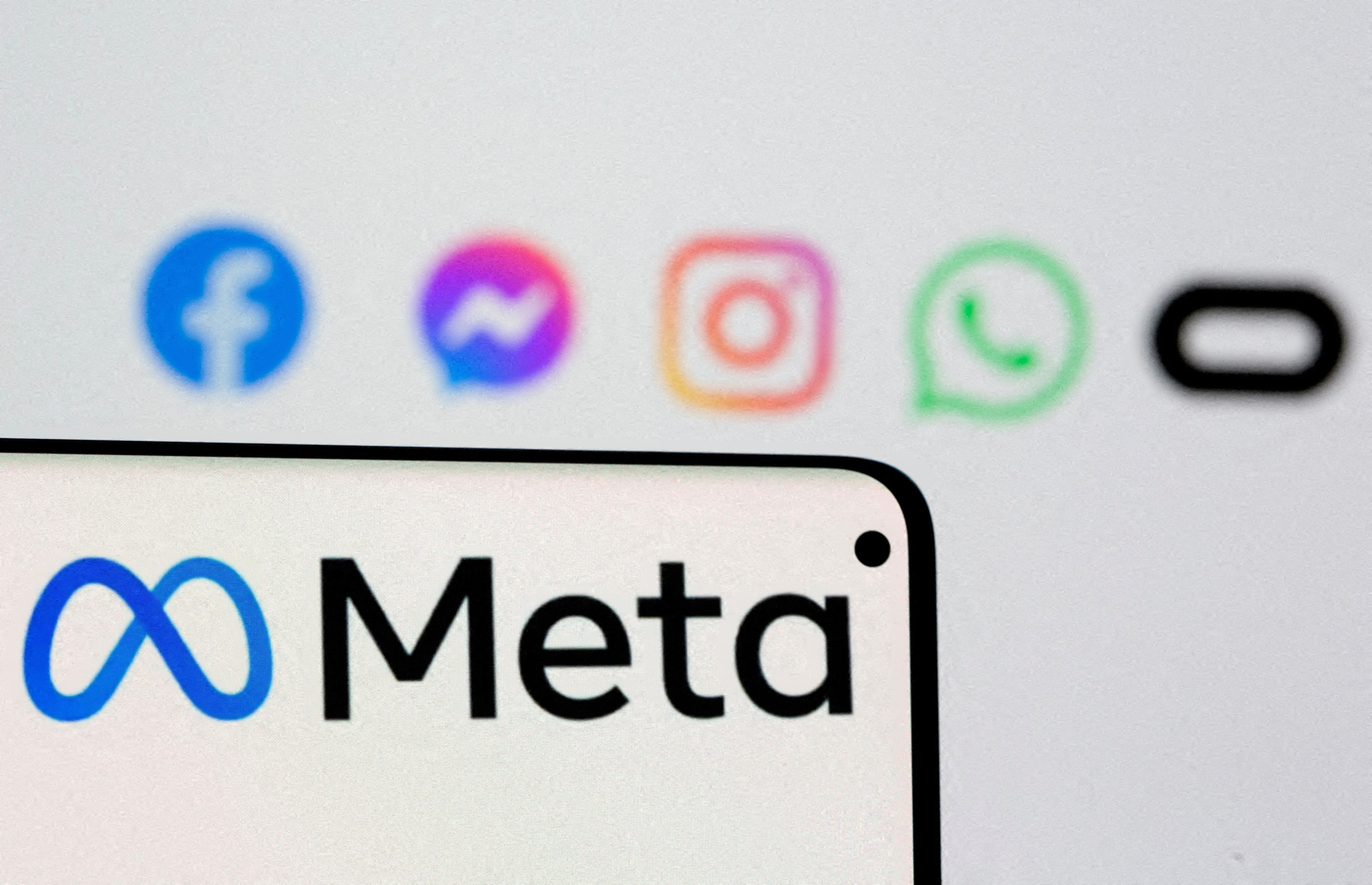On Wednesday, Mark Zuckerberg, the CEO of Meta Platforms (META.O), introduced new AI products for consumers, which include bots capable of generating lifelike images, smart glasses that can answer questions, and an updated virtual-reality headset. Zuckerberg emphasized that these products aim to blend the virtual and real worlds, highlighting that part of Meta’s offering involves cost-effective or free AI integration into daily life. The company’s VR headset, Quest, is a top seller in the emerging VR market, and Meta’s executives touted it as the best value in the industry, likely in anticipation of Apple’s upcoming release of a more expensive headset (AAPL.O).
Addressing the audience from a central courtyard within Meta’s expansive Silicon Valley campus, Zuckerberg announced that a fresh iteration of Meta’s Ray-Ban smart glasses would become available for purchase on October 17, with a price tag of $299.
These glasses will feature an upgraded Meta AI assistant and the capability to live-stream the user’s perspective directly to Facebook and Instagram, marking an advancement compared to the previous generation, which could only capture photos.
Zuckerberg delivered his address at the Meta Connect conference, which is the largest annual event for the social media company and marked its first in-person conference since the onset of the pandemic.
During the event, he announced that the latest Quest mixed-reality headset would become available for shipment on October 10. He also unveiled Meta’s inaugural consumer-oriented generative AI products, which encompass a chatbot named Meta AI capable of producing both text responses and lifelike images.
Zuckerberg explained that innovation can take different forms—sometimes, it involves introducing entirely novel concepts, while other times, it means taking something fantastic but prohibitively expensive and making it accessible to everyone, possibly even at no cost.
Meta AI will be integrated into the smart glasses, initially through a beta release in the United States. A forthcoming software update in the following year will enhance the assistant’s capabilities, enabling it to recognize objects and locations that users see and perform language translations.
Meta developed Meta AI using a customized model based on the robust Llama 2 large language model that the company made available for public commercial use in July. Zuckerberg noted that the chatbot will have access to real-time information through a partnership with Microsoft’s Bing search engine.
In an interview with Reuters, Meta Global Affairs President Nick Clegg disclosed that the company has taken measures to filter out private information from the data used to train the model. Moreover, they have imposed restrictions on what the tool can generate, including a prohibition on creating realistic images of public figures. Clegg cited LinkedIn as an example of a website whose content was intentionally excluded from the dataset.
CUSTOM AI BOTS:
Meta also revealed its intention to construct a platform that allows developers and regular users alike to design their personalized AI bots. These bots will have profiles on Instagram and Facebook and eventually take on roles as avatars within the metaverse.
To illustrate the capabilities of this tool, Meta created a collection of 28 chatbots, each with distinct personalities emulating the voices of celebrities such as Charli D’Amelio, Snoop Dogg, and Tom Brady, as detailed in a company blog post.
These features seem geared towards enhancing existing applications and devices, rather than generating new advertising opportunities or revenue streams.
Bob O’Donnell, Chief Analyst at TECHnalysis Research, remarked, “I don’t anticipate Meta monetizing AI products in the near future. It appears they are more focused on fostering a platform that other developers will utilize.”
Zuckerberg also announced that Xbox cloud gaming would be available on the Quest starting in December.
Meta had initially unveiled the Quest 3 headset during the summer, coinciding with the introduction of Apple’s Vision Pro headset, a high-end product priced at $3,500.
With a starting price of $500, the Quest 3 boasts the same mixed-reality technology featured in Meta’s pricier Quest Pro device launched the previous year, offering users a video feed of their real-world surroundings.
These announcements reflect Zuckerberg’s approach to navigating the shift in investor enthusiasm this year, moving from augmented and virtual reality technologies to artificial intelligence.
The event held significant stakes, as investors had criticized the parent company of Facebook and Instagram the previous year for heavy spending on the metaverse. In response, Zuckerberg had to lay off tens of thousands of employees to continue funding his vision.
Developers were keenly observing to assess the potential applications they could create for Meta’s latest hardware devices, while investors were looking for signs of whether the gamble, which had cost the company over $40 billion since 2021, might eventually pay off.


